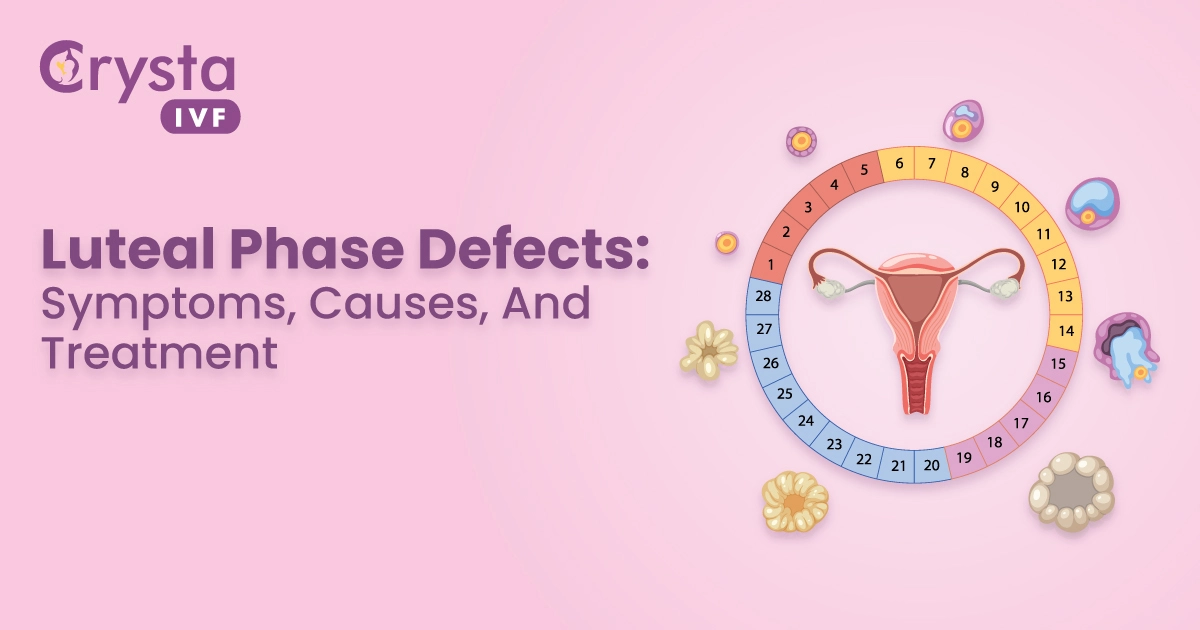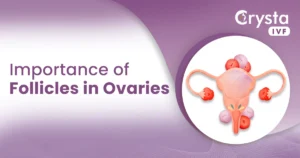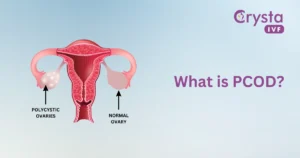Let’s break down the luteal phase in simple terms.
Every month, when a woman goes through her periods, her body releases an egg from her ovaries to prepare for a potential pregnancy. We refer to this process as ovulation. Women enter the luteal phase only after ovulation.
The luteal phase resembles a prospective parent’s cozy nest-building period. The “corpus letuem” is a comfortable landing spot for the egg that needs to land if it meets a sperm and begins becoming a baby. The luteal phase enters the picture here.
During this period, if no sperm or egg meets, the corpus luteum dissolves and tells your body that a new cycle needs to begin. This is the start of your menstrual cycle and the new cycle.
Luteal Phase Defect And Its Impact On Fertility
Short Luteal Phase
The luteal phase in women is shorter, lasting 10 days or less. This luteal defect is a fertility disorder that interferes with the ovulation cycle and can make it challenging to become pregnant and have a healthy baby. Low levels of progesterone are the cause of it. The abnormality in this condition prevents the growth of the uterine lining, which is necessary for egg implantation and fetal development.
Long luteal phase
A long luteal phase signifies that your period starts to appear eighteen days or more after ovulation. Prolonged luteal phases may indicate hormonal dysregulation, including polycystic ovarian syndrome (PCOS).
Signs and Symptoms of Luteal Phase Defects
Short Luteal Phase:
These are a few common symptoms of the luteal phase defect, including:
- Spotting between periods
- Early menstrual cycles
- Difficulty becoming pregnant
- Miscarriage
Long Luteal Phase
Here are a few symptoms that you might experience if you have a long luteal phase:
- Delayed Period for more than 35 days
- Heavy Bleeding
- Breast Tenderness
- Prolonged Premenstrual Symptoms (PMS)
- Unusual Spotting
- Painful Ovulation
Causes for Luteal Phase Defects
Short Luteal Phase
As with most issues on sexuality or fertility, any woman can experience the short luteal phase. It occurs as a result of insufficient progesterone production in her body. A woman may be more likely to experience a brief luteal phase if she has certain medical issues. Among these prerequisites are:
- Stress
- Underactive or overactive thyroid
- Endometriosis
- Polycystic Ovarian Syndrome
- Excessive exercise
- Anorexia
- Obesity
- Age
Long Luteal Phase
A prolonged phase can bring a lot of challenges, such as:
- Excess Progesterone
- Extra Estrogen
- Prolactin Issues
- Fibroids or Cysts
- Thyroid Dysfunction
- Chronic Stress
- Pelvic Inflammatory Disease (PID)
- Endometriosis
Diagnosing With Experts
Shor Luteal Phase
If you’re planning on becoming a mother but are unable to conceive or maintain a healthy pregnancy, consult your doctor. They will suggest blood tests to check the following hormone levels:
- Follicle-stimulating hormone (FSH) – the hormone that stimulates ovarian follicle growth.
- Luteinizing Hormone (LH) – It triggers ovulation.
- Progesterone – It is a hormone that causes uterine lining growth and supports a healthy pregnancy.
An endometrial biopsy may occasionally occur one or two days before your anticipated menstrual cycle. A sample of your uterine lining is taken, and its thickness is measured under a microscope.
Long Luteal Phase
Seeking expert guidance can help diagnose and manage the long luteal phase is a must. Here are some tests that you should consider to check your hormones leading to long luteal phase:
- Follicle-stimulating hormone (FSH): Controls the maturation of eggs and the growth of ovarian follicles.
- Luteinizing hormone (LH): Initiates the menstrual cycle and affects the production of progesterone.
- Progesterone: Evaluates how well it supports the uterine lining in preparation for implantation.
- Estrogen: Assesses its harmonious relationship with progesterone throughout the cycle.
- Prolactin Assay: This test measures prolactin, which, when elevated, can lengthen the luteal phase and inhibit the production of progesterone.
The luteal phase defect can be a hurdle on your journey to motherhood. However, understanding its causes and symptoms allows you to seek help. Early diagnosis and personalized treatment options, including hormone supplements, can optimize your chances of conception and a healthy pregnancy. Don’t hesitate to talk to your doctor if you suspect a luteal phase defect.




